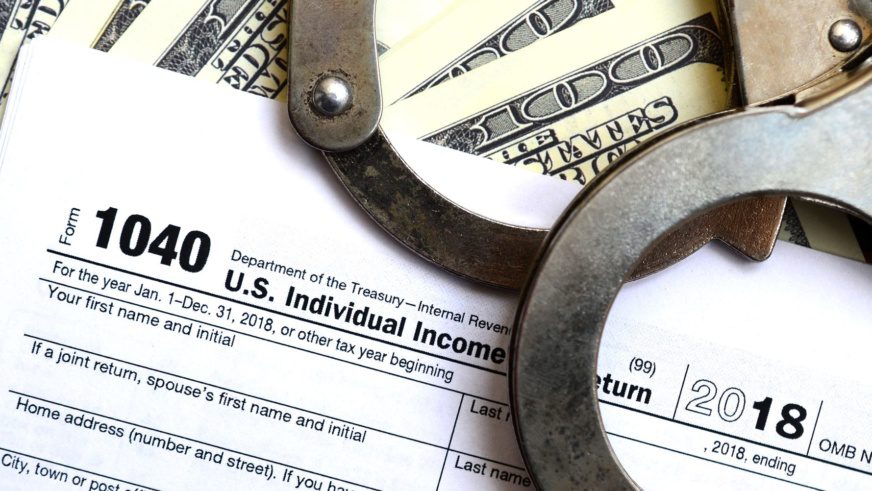
You’re knee-deep in tax debt and wondering what could possibly happen if you ignore it. It’s a tricky situation that can spiral out of control fast.
You’ll face immediate consequences, long-term financial damage, and even legal implications.
But don’t worry, we’ve got you covered. This article will help you understand the impact of unpaid taxes and provide strategies to manage this potentially overwhelming situation effectively.
Understanding the Basics of Tax Debt
You’ve got to grasp the basics of tax debt if you’re to avoid its potential pitfalls. Understanding Tax Collections is a crucial part of this process.
When you fail to pay your taxes, the amount owed becomes tax debt. The Internal Revenue Service (IRS) then initiates a collection process that can have severe financial consequences.
To begin with, the IRS calculates and adds interest on your unpaid balance from the day your return was due until full payment is received. They don’t stop there; they also slap on late payment penalties, further increasing your total liability.
The Tax Debt Consequences are not just monetary; they extend beyond the immediate financial burden. If you ignore or delay settling your tax debt, it can impact other aspects of your life as well.
For instance, it can lead to wage garnishment where a portion of your wages is withheld by an employer under legal mandate for direct payment to the IRS until the debt is fully paid off.
Moreover, ignoring tax debts might result in property liens or levies – where assets may be seized or sold off to settle what’s due. It could affect credit ratings too making future borrowing difficult and expensive.
Understanding these consequences should compel anyone owing taxes to take immediate action towards resolution rather than deferring or avoiding their responsibility. Remember: knowledge is power when dealing with tax debts – equip yourself with it so that you’re not caught unawares by these potential pitfalls.
The Immediate Effects of Neglecting Tax Debt
It’s crucial to understand that neglecting your financial obligations can lead to immediate and severe repercussions. When it comes to tax evasion consequences, you’re not just risking fines and penalties; you could be subjecting yourself to a criminal investigation with the potential for jail time.
You may think that ignoring your tax debt won’t have an immediate impact on your life. However, the truth is, once the IRS notices unpaid taxes, they will act quickly. They can place a lien on your property or even issue a levy, which allows them to seize your assets or garnish wages. These actions are taken without court intervention and can happen sooner than you might expect.
Fortunately, there are ways out of this situation if you find yourself in it. One effective solution for managing significant tax debt is exploring debt consolidation options. Consolidating your debts allows you to combine multiple payments into one manageable monthly payment with potentially lower interest rates.
However, it’s essential not to take this step lightly as it involves taking out new credit and should be seen as part of a broader financial plan rather than a quick fix. It’s also important to note that debt consolidation doesn’t erase any owed amount; instead, it restructures it into a more manageable form.
Long-Term Ramifications of Unpaid Taxes
While short-term impacts of unpaid taxes are severe, they’re just the tip of the iceberg when compared to potential long-term ramifications. If you continue neglecting your tax debt, the government’s response will escalate over time and result in dire consequences.
- Tax lien implications: The IRS can place a tax lien on your property if you don’t pay your taxes. This means they have a legal claim against your property, which makes selling or refinancing difficult. A tax lien can also damage your credit score, making it harder for you to qualify for new credit or loans in the future.
- Debt inheritance consequences: In some cases, unpaid tax debt can be passed on to heirs after death. While this isn’t always the case as federal law often protects heirs from such debts, certain exceptions may apply that compel them to inherit and repay these debts.
- Criminal charges: Tax evasion is considered a serious crime by the IRS and carries hefty penalties including fines up to $250,000 for individuals and imprisonment for up to 5 years.
- Loss of Social Security benefits: If you owe back taxes, part of your social security benefits could be garnished by the IRS until your debt is paid off.
Ignoring tax debt won’t make it disappear – it only worsens with time due to accumulating interest and penalties. Therefore, address any outstanding taxes promptly to avoid its detrimental long-term impacts.
Impact of Tax Debt on Your Credit Score
Don’t underestimate how unpaid dues to the IRS can tank your credit score. When you neglect to pay taxes, the IRS may file a federal tax lien against you. This public record not only confirms your debt but also seriously dents your creditworthiness.
Your credit score, that three-digit figure lenders use to assess your financial trustworthiness, is heavily influenced by such negative records. A lower score means you’ll struggle to qualify for loans or credits and when you do, they will come with high interest rates. It’s imperative that you understand this impact and take steps towards Credit Score Recovery.
So how does one recover from such a blow? Diligently paying off your debts is the first step in repairing your credit score. The sooner you clear off outstanding amounts, the better it reflects on your commitment to financial responsibility. If managing multiple payments becomes overwhelming, Debt Consolidation Options might be worth considering.
Debt consolidation involves combining all of your debts into one single payment; typically with lower monthly installments and reduced interest rates compared to what you’re currently paying separately. Not only can debt consolidation help manage payments more efficiently but it can also assist in recovering from tax-induced damage to your credit score.
Remember though, while Debt Consolidation Options offer temporary relief by simplifying repayment structures and potentially lowering costs – they are not a magic fix all solution for poor financial habits or decision-making. Ultimately, avoiding tax debt altogether should be a vital part of maintaining solid financial health.
Legal Implications of Ignoring Tax Debt
Skirting around your obligations to the IRS isn’t just detrimental to your credit score; it can also land you in legal hot water. The consequences of ignoring tax debt are severe, and it’s crucial that you understand what they entail.
Tax evasion penalties, dictated by federal law, are designed to ensure taxpayers fulfill their responsibilities. Here’s a brief rundown:
- Penalties: Delinquency on your taxes will lead to penalties, which increase over time if left unpaid.
- Interest: On top of these penalties, interest accrues on both your outstanding tax due and the penalties themselves.
- Federal Tax Lien: Should you continue to ignore your tax debt, the IRS may place a federal tax lien against your property – making it difficult for you to sell or refinance.
- Seizure of Property: In extreme cases, and in accordance with debt collection laws, the IRS has the power to seize assets such as bank accounts, wages, or even personal property.
These repercussions aren’t meant to intimidate but serve as an earnest warning about neglecting one’s fiscal duties. It’s not all doom and gloom though—you do have options available for resolving tax issues including payment plans or offers in compromise with the IRS.
Remember: paying taxes is not only a civic duty but also essential for maintaining financial health and avoiding legal complications down the line. Always consult a reliable professional when dealing with complex matters like this to ensure compliance while minimizing potential damage.
How Tax Debt Can Affect Your Personal Life
It’s not just about legal implications; owing money to the IRS can also wreak havoc on your personal life. The strain it places on relationships is profound, and the mental stress can be overwhelming.
The pressure of tax debt often leads to relationship strain. Maybe you’re constantly arguing with your spouse about finances, or perhaps friends are beginning to distance themselves because they’re tired of hearing about your financial woes. You might even find yourself isolated because you can’t participate in social activities that require spending money you don’t have.
Then there’s the mental stress associated with tax debt. It’s a constant weight on your mind, causing anxiety and depression as you worry about how to pay off what you owe while still managing other financial responsibilities. The fear of potential legal repercussions adds another layer of worry, further exacerbating the mental distress.
Ignoring tax debt won’t make it go away; it’ll only compound these problems over time. It’s vital that you face this issue head-on and seek professional advice if necessary. Create a plan for paying back what you owe – whether through an installment agreement, offer in compromise, or some other method approved by the IRS.
Remember: knowledge is power when dealing with tax debt. Understanding its implications – both legal and personal – helps reduce uncertainty and associated stress levels. So arm yourself with information and take proactive steps towards resolution.
Don’t let this become more than a temporary setback in your life journey; remember, every problem has a solution if addressed promptly and correctly.
Tax Debt and Its Influence on Business Operations
When it comes to running a business, unpaid liabilities can significantly disrupt daily operations. Tax evasion penalties and tax debt refinancing are among the most critical factors you need to consider in managing your finances.
The following points will help you understand how tax debt influences your business:
- Tax Evasion Penalties: These penalties are severe and can cripple your organization’s cash flow. They include hefty fines that could amount to thousands of dollars, potential jail time, and tarnished reputation. Ignoring or evading taxes is not only illegal but also detrimental to your business.
- Business Credit: Unpaid taxes can hurt your credit score, making it challenging for you to get loans or other forms of financing in the future.
- Tax Debt Refinancing: This refers to taking out a new loan to pay off existing tax liabilities—often seen as a lifeline for businesses facing financial strife due to unpaid taxes.
- Business Operations: Lastly, tax debts cause significant operational disruption as resources intended for growth or expansion may be diverted towards settling these back-taxes.
Strategies for Managing Outstanding Tax Debt
Navigating through the maze of outstanding liabilities, there are several strategies that can help your business manage its financial obligations effectively. One such tactic involves exploring available Debt Consolidation Options. This strategy allows you to combine multiple debts into a single payment, often at a reduced interest rate or with more manageable repayment terms.
The decision to consolidate should not be taken lightly; it’s essential to weigh the pros and cons carefully. Remember, consolidation doesn’t eliminate your debt – it merely restructures it in a way that may make it easier for you to handle.
Another key strategy is seeking Emergency Tax Relief. If tax debt is causing significant distress for your business operations, this relief option could provide much-needed assistance. This might include an offer in compromise (an agreement between you and the Internal Revenue Service that settles your tax liabilities for less than the full amount owed) or an installment agreement (a plan where you can pay off your tax debt over time).
You’ll need to determine if you’re eligible for these programs and understand their potential implications on your overall financial situation. Consulting with a tax professional is highly recommended here; they’ll guide you through the complexities of these processes.
Seeking Professional Help for Tax Debt Resolution
Seeking professional help for resolving financial liabilities can significantly alleviate the stress and confusion associated with managing such burdens. Engaging a debt counselor or tax relief firm brings to your aid an arsenal of Professional Negotiation Tactics. These professionals come armed with expertise in understanding complex tax laws, identifying possible deductions, and negotiating favorable payment terms.
Here are four key Debt Counseling Benefits:
- Expert Guidance: Counselors provide comprehensive strategies tailored to your situation, helping you understand IRS notices and forms which can be overly complicated.
- Negotiation Skills: They employ advanced tactics to negotiate with the IRS on your behalf for reduced penalties or interest, installment agreements, or even an offer in compromise.
- Protection from Collection Actions: Once engaged, these professionals can often halt aggressive collection actions by the IRS like wage garnishments or liens on your property.
- Peace of Mind: With a professional handling your case, you’re relieved from the constant worry about potential legal consequences.
You should never underestimate the role of professional advice when dealing with tax debt issues. By seeking expert assistance early on, it’s possible to avoid more significant problems down the line such as hefty penalties or legal action.
Remember: You don’t have to face this daunting task alone. Make use of available resources and seek out specialized knowledge when necessary. After all, there’s no substitute for experience when navigating through complex situations like dealing with unpaid taxes!
Preventative Measures to Avoid Future Tax Debt
It’s crucial to consider preventative measures early on to sidestep future financial woes. Understanding tax deductions can play an imperative role in proactive financial planning, helping you avoid unnecessary tax debt.
Here’s a simple table to provide some clarity:
| Expense Category | Potential Deduction | Action Required |
|---|---|---|
| Home Office | Yes | Keep receipts and measure your workspace |
| Business Travel | Yes | Maintain detailed records of travel expenses |
| Health Insurance | Yes (for self-employed) | Consult with a tax professional |
| Charitable Contributions | Yes | Keep donation records and receipts |
This Tax Deductions Awareness can potentially save you thousands each year, reducing your taxable income significantly. However, it’s not as easy as just knowing what can be deducted; you have to keep meticulous records and ensure that all deductions are legitimate.
Proactive Financial Planning is about more than just understanding potential deductions though. It also involves setting aside funds for taxes throughout the year, making estimated payments if necessary, and regularly reviewing your financial situation to adjust as needed.
Frequently Asked Questions
How Does Bankruptcy Affect My Tax Debt?
Bankruptcy’s impact on your tax debt depends largely on the type of bankruptcy you’re filing. Chapter 7 can potentially wipe out your tax debt, but there are strict criteria to meet. Chapter 13 allows you to pay off your debt over time.
Analyzing your bankruptcy timeline is crucial, as older tax debts may be easier to eliminate than recent ones. It’s important to seek professional advice before making such a significant decision.
Can I Negotiate My Tax Debt With the Irs?
Yes, you can negotiate your tax debt with the IRS. It’s called a Tax Debt Settlement.
You’ll need to apply and provide proof of your financial situation.
The IRS doesn’t easily accept these settlements, so it’s beneficial to seek help from Taxpayer Advocacy Services.
They’ll guide you through the process and ensure your best interests are represented.
What Are Some Common Scams Related to Tax Debt Relief?
You’ve got to be wary of scams related to tax debt relief. Often, they’ll promise instant or highly unlikely outcomes like complete debt forgiveness. Scam recognition is vital here.
Look out for unregistered companies, aggressive marketing tactics, and demands for upfront payment without clear service delivery terms. If you’re a victim, there’s support available through various consumer protection agencies and legal aid services.
Always research any company before engaging their services for tax debt relief.
How Does Tax Debt Affect My Eligibility for Government Benefits?
Ignoring your tax debt can severely impact your eligibility for government benefits. The Benefit Reduction Impact kicks in when you’ve accumulated significant Tax Debt.
Essentially, the government may reduce or even deny benefits like Social Security or unemployment until you’ve cleared your debt. It’s crucial to address this issue promptly to avoid these complications.
Don’t let a looming tax debt jeopardize the support you need; take action and seek professional advice if necessary.
What Happens to My Tax Debt if I Decide to Emigrate to Another Country?
If you’re considering emigration, don’t assume your tax debt will just disappear. Many countries have agreements for Debt Collection Abroad, so your home country can pursue the debt even after you’ve left.
Emigration implications may include your new country denying visa renewals or even residency until the debt is settled. It’s important to address these issues before moving to avoid potential legal and financial complications.
Conclusion
You’ve seen the hefty consequences of ignoring tax debt. Your credit score, business operations, and even your legal status can be negatively impacted. Don’t let this be you.
Put strategies in place to manage existing tax debt and prevent future ones. Reach out for professional help if needed.
Remember, it’s not just about paying your dues – it’s about securing a stress-free financial future.




